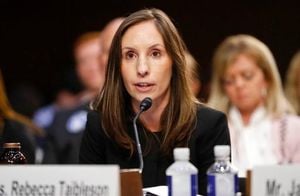When Indigo Sun, the UK’s largest tanning salon chain, launched an online campaign in April 2025 touting the “major health benefits” of moderate sunbed use, it likely expected to spark conversation—perhaps even a bit of controversy. But what followed was something else entirely: a regulatory showdown, a public health outcry, and a landmark ruling by the Advertising Standards Authority (ASA) that’s rippling across an industry already under scrutiny.
At the heart of the storm was a glossy video on Indigo Sun’s website, boldly titled “The Health Benefits of Tanning.” The advert leaned heavily on a University of Edinburgh study, claiming that “moderate responsible use of sunbeds brings major health benefits.” The voiceover asserted, “A recent University of Edinburgh study revealed that UV exposure provides a net health benefit. Using data from over 360,000 people from the UK Biobank, scientists found that higher UV exposure whether from sunlight or tanning beds is linked to reduced deaths from cancer and heart disease.” The ad even cited specific figures: sunbed users showed a 15% lower risk of all-cause mortality, a 23% lower risk of dying from heart disease, and a 14% lower risk of cancer mortality compared to those who never used tanning salons. It also claimed, “The research also showed that sunbed use was not associated with melanoma mortality.”
But for many in the medical and regulatory communities, these claims set off alarm bells. Dr. Amy Perkins, an NHS dermatologist and ambassador for the skin cancer charity Skcin, filed a formal complaint with the ASA. She argued that the University of Edinburgh study had been taken out of context and that the advert’s message was not only misleading, but potentially dangerous. According to the BBC, Dr. Perkins did not mince words: “These ads leaned on a flawed study, presented as proof that sunbeds improve health. Patients were repeating these claims in clinic – many of them very young, some already facing melanoma diagnoses. That’s why this ruling matters.”
The ASA’s investigation was swift and thorough. After reviewing the evidence, the watchdog concluded that the Indigo Sun advert was “misleading, unsubstantiated and socially irresponsible.” The regulator found that the study cited by Indigo Sun was based on self-reported questionnaires about sunbed use, excluded younger age groups, and followed participants for a relatively short period. As a result, the ASA said, “The study was not sufficiently robust to prove the health benefits claimed.”
Crucially, the ASA also noted that the advert omitted official health advice from organizations such as the NHS and Cancer Research UK, both of which warn against sunbed use due to the increased risk of skin cancer. The NHS, for example, has long maintained that exposure to UV rays is the number one cause of skin cancer in the UK—including melanoma, the most dangerous type. Other risks associated with sunbeds, according to the NHS, include eye damage, premature aging, and a weakened immune system.
In its ruling, the ASA stated: “We considered the ad did not sufficiently highlight to consumers the known health risks of using sunbeds, as clearly stated by the NHS, nor did it present any alternative means of improving vitamin D levels such as through supplementation and diet. We further considered that where safer alternatives were available to consumers, irrespective of where they lived, it was irresponsible to promote sunbed use, with its known risks, as the primary way to increase vitamin D levels. Because the ad omitted information on official advice from public health bodies about the risks of sunbeds, whilst creating an overall impression that the health benefits of using sunbeds significantly outweighed the risks, we concluded that it was irresponsible.”
The verdict was decisive: the advert must not appear again in its current form. Indigo Sun was told to “ensure they did not make misleading or irresponsible claims about the health benefits that could be obtained from the use of sunbeds.”
Indigo Sun, for its part, defended its campaign. Chief executive Frank Taylor expressed disappointment, telling the BBC, “We remain disappointed that a peer-reviewed study conducted by the University of Edinburgh, one of the UK’s most respected academic institutions, and based on UK Biobank data from over 360,000 participants, was not considered sufficient evidence to support the claims made. Our intention was always to share the science, not to make exaggerated or irresponsible assertions.” Taylor added, “We acknowledge that not everyone agrees with the interpretation of those findings, but we believe they merit inclusion in the broader conversation about UV, vitamin D and public health – a conversation that has been overly reliant on old, outdated studies.”
Despite its objections, Indigo Sun confirmed it would comply with the ASA’s ruling and withdraw the advert. “We respect the ASA’s role and accept the outcome of their review. We will remove the video and are taking on board the feedback provided,” Taylor said in a statement to the Daily Mail.
The public health community, meanwhile, celebrated the decision. Marie Tudor, chief executive of Skcin, described the ASA’s action as a “landmark ruling in the fight against misinformation surrounding sunbed use.” She elaborated, “The adverts have been deemed ‘misleading, unsubstantiated and socially irresponsible’ and must be removed from circulation across the UK. This is a landmark ruling in the fight against misinformation surrounding sunbed use. It comes at a time when young patients are increasingly repeating these claims in clinic, underlining how harmful misleading advertising can be.”
Caroline Larissey, chief executive of the National Hair and Beauty Federation, emphasized the broader significance, stating, “This ruling demonstrates the power of individual action in creating meaningful regulatory change. It's a rare and significant example of how one person's complaint can lead to national protection measures. This victory will help safeguard the public from irresponsible advertising that could have serious health consequences.”
For context, sunbed use in the UK is regulated: customers must be over 18, are screened for contraindications, provided with protective eyewear, and advised on session length. Indigo Sun has stressed that its staff monitor usage and adhere to strict limits on UV output. Still, health authorities—including the NHS, the British Association of Dermatologists, and Cancer Research UK—continue to advise against sunbed use, citing links to skin damage, premature aging, and increased risk of melanoma.
The University of Edinburgh, whose research was at the center of the controversy, clarified its position. A spokesperson told the Daily Mail, “The peer-reviewed study investigated the link between sun exposure and health in the UK, analyzing data from nearly 400,000 people. Sunbed use was included as one measure of exposure. As noted in the paper, sunbed users were studied as they are more likely to actively seek out sun exposure than non-users. Both measures identified a link between increased sun exposure and a drop in deaths due to cardiovascular disease and cancer, but observational studies cannot prove cause and effect. Further studies are needed to build a clearer picture of the relative risks and benefits of UV exposure to health.”
As the dust settles, the ASA’s ruling underlines a persistent tension between industry marketing and public health messaging. While Indigo Sun maintains its adverts were grounded in legitimate science, regulators and health advocates insist that the risks of sunbeds—especially when downplayed or misrepresented—are simply too great to ignore. The debate over tanning, health, and responsibility is far from over, but for now, the message from the UK’s advertising watchdog is clear: health claims about sunbeds must be held to the highest standard of evidence, with public safety as the top priority.




